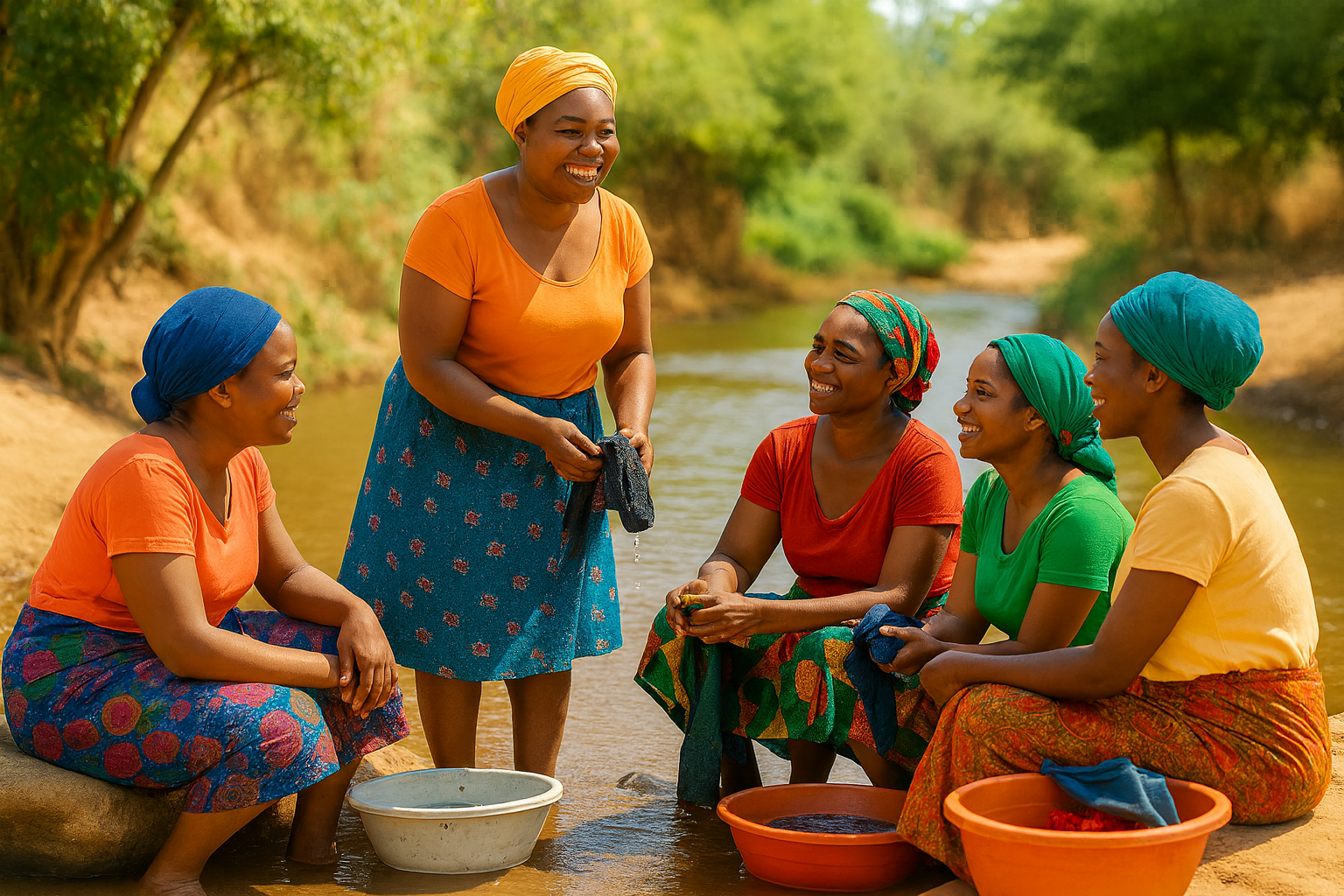
Written by Nadège Sheehan, PhD – Co-Founder & President of OneGuild Institute. She specializes in peacebuilding, health equity, and conflict-affected systems.
Conversations about women in leadership are everywhere. And rightly so. But in many fragile or underserved communities, the most transformative leadership does not happen in boardrooms or ministries. It happens around kitchen tables, in schoolyards, by the river while washing clothes, or during informal health visits, where women shape behaviors, make daily decisions, and hold families and communities together.
If we are serious about peacebuilding, we must be serious about empowering women where they are, through education, through health, and through trust in their ability to lead from the inside out.
Quiet Leadership in Daily Life
The women who influence peace most powerfully may never hold formal leadership roles. But they model how to care for children, when to seek medical help, how to manage food and resources during crisis, and how to support neighbors with dignity and resilience.
This is a form of quiet leadership, invisible in many reports but deeply felt on the ground. These women stabilize their communities not through speeches or policies, but through consistent, thoughtful action. Recognizing and investing in this kind of leadership is critical if we want peace to last.
Education as Empowerment and Prevention
When women are equipped with knowledge, such as basic health practices, disease prevention, maternal care, and hygiene, they become a public health infrastructure in motion. They transmit that knowledge to children, peers, and entire neighborhoods. This kind of education creates a ripple effect, building healthier, more resilient communities.
Importantly, health education is also prevention, and prevention is peacebuilding. Health education reduces vulnerability, increases agency, and shifts the balance away from crisis toward continuity.
Why This Matters for Peacebuilding
In fragile settings – or even in communities dealing with chronic social stress – systems can break down. But women remain. When those women are informed, respected, and resourced, they become frontline actors in preserving stability and rebuilding trust.
Peace is not only achieved through formal negotiation or institutional reform. It is also sustained through relationships, through knowledge-sharing, and through women’s ability to lead informally when formal mechanisms fail.
Empowering women with health education goes far beyond basic service provision. It is, above all, a strategic investment in peace.
When we recognize the quiet strength of women in health and education, we begin to understand where peace truly begins.
__________________________________________
➝ Read Next: When Health Builds Peace: Why Equity is a Strategic Imperative
This article also appeared in the Peace & Health Initiative monthly newsletter. Subscribe here to receive future issues directly.